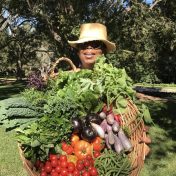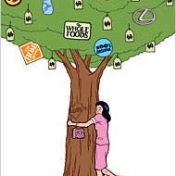Is Green Worth the Fuss? How can we incentivize people to overcome the collective action problem, stop free-riding and take action when the benefits are so long term and indirectly seen? One common solution is to “vote with your wallet” and buy green or sustainable products whenever possible, even when making small purchasing decisions like buying a bottle of… Read more »
In Pollan’s book, In Defense of Food, he elaborates on what he believes humans should eat and discusses why food and eating stand in need of defense. Most importantly he critiques the “reductionist” approach to food, which focuses on various nutrients, rather than the holistic approach. Although his work was published before social media took off, it is still challenging… Read more »
For decades, Americans have been taught to save the planet by making changes to their own lifestyles – use LED light bulbs! buy reusable grocery bags! eat organic food! We are told that buying (and consuming) green is what “good people” do, that an individual’s consumption can change the world. While this is a productive cultural framework for companies selling… Read more »
When scientists tried boldly to maximize the product and nutrient efficiency of our food over a hundred years ago, we succeeded, but along came the consumption of chemicals through pesticides, highly processed foods, and relative biological uniformity in our diet. These characteristics of our diet have in turn given us everything we need to be biologically healthy, except ironically, the… Read more »
All I could say when I finished reading Michael Pollan’s In Defense of Food was: Okay, not intentionally racist, but racist in impact. As I put pen-to-paper finger-to-keyboard and write this out, I fully understand that my statement probably will have many supporters of nutritionism up in arms about its validity. Though, I do not intend to throw the baby out with… Read more »
Michael Pollan’s “In Defense of Food” did a great deal for me in explaining my misconceptions on diet and Nutritionism, but I felt it stopped short of coming up with any solutions that can have any widespread change. The article by Julie Guthman echoes these sentiments somewhat. Yes, it is important to strive the best we can to eat foods… Read more »
Sociology professor Andrew Szasz came up with the term “inverted quarantine” to describe people who seek to isolate themselves from exterior ecological threats by way of individualizing environmental responsibility. Similarly, according to Michael Maniates, Americans think that the environment can be spared as a result of smart consumer action done by individuals. Such an idea is also the main focus… Read more »
We live in a very fast pace world and free time is often hard to come by. Most Americans are working up to 40 hours a week if not more. The process of purchasing and cooking a healthy whole foods meal as Michael Pollan the author of In Defense of Food suggests takes both time and labor. It is much… Read more »
Nutritionism, a food ideology described in Michael Pollan’s In Defense of Food, is an inaccessible notion of food justice that isolates middle and lower-class consumers. Pollan describes nutritionism as a relatively revolutionary new way of thinking about eating food, especially as this reductionist approach translates meals into scientifically calculated intake. Pollan even says nutritionism “might be the best thing ever… Read more »
To those who may be unfamiliar, greenwashing is a marketing tactic that promotes products as “green” or “healthy” without holding any real benefit to the consumer, the environment, or greater social equity. As mentioned by Jennifer McNulty, “‘buying green’ offers little real defense against environmental hazards and may pose an even greater threat by lulling people into a false sense… Read more »


